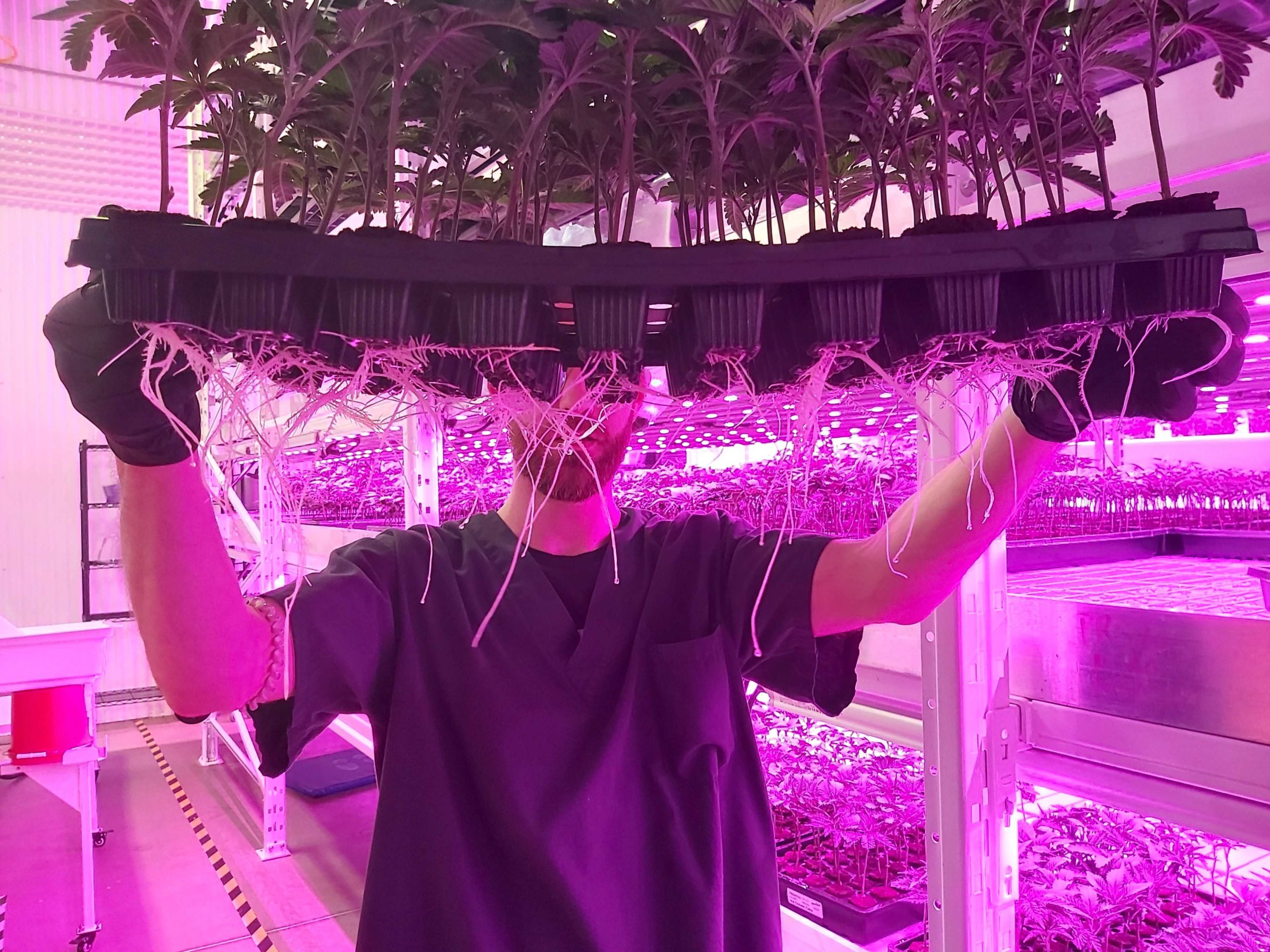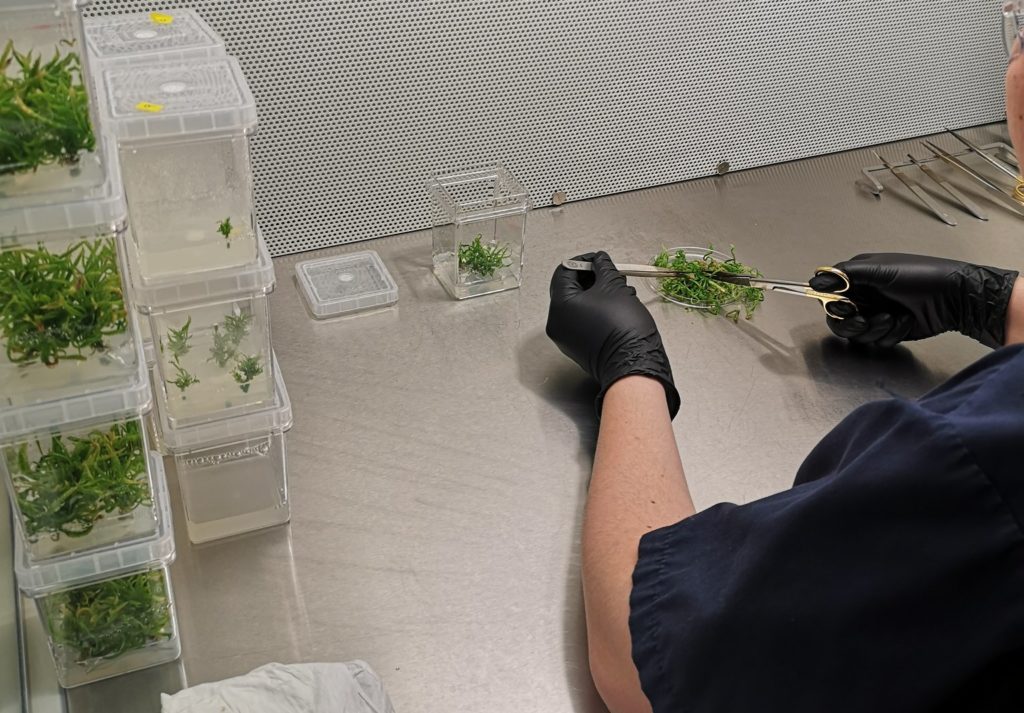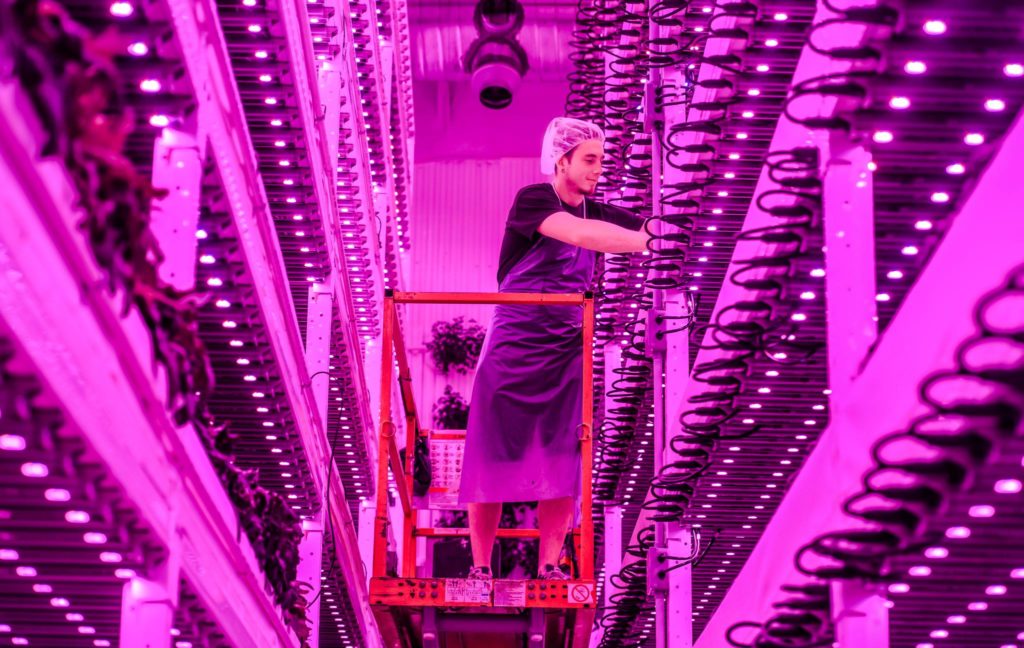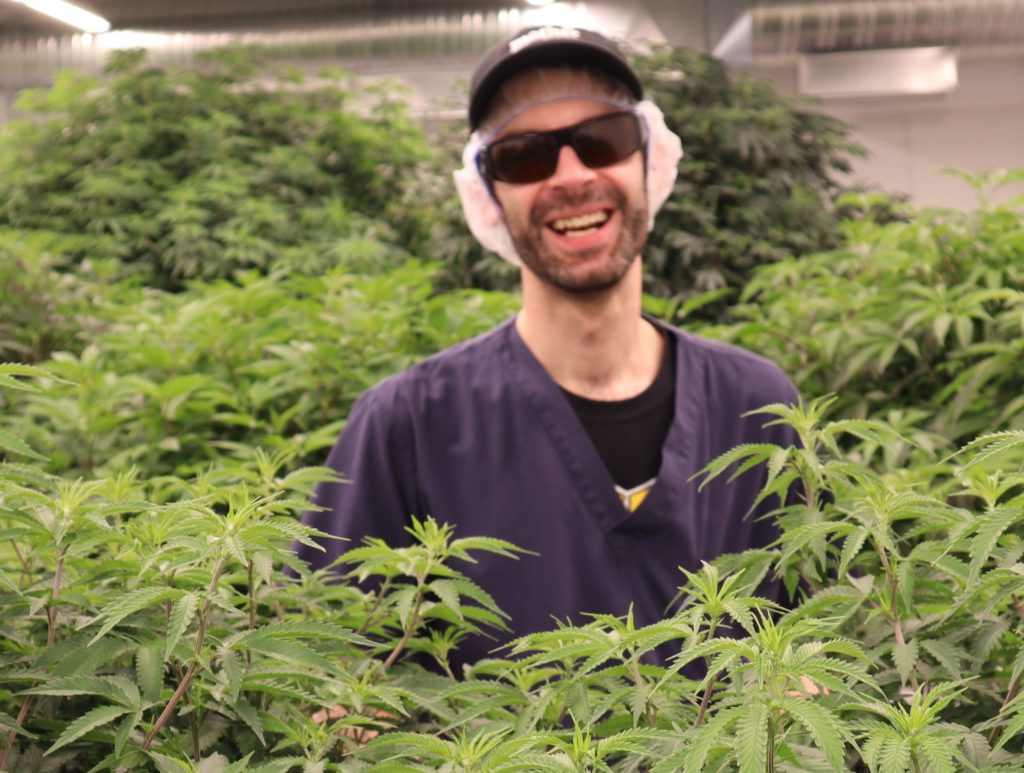
| COMPANY: | Mother Labs Inc. |
| LICENCE TYPE: | Nursery |
| APPROACH: | Clones, tissue culture |
| TIMELINE: | 10 months |
| COST: | ~$2m+ |
| FACILITY: | Indoor |
Saskatchewan’s Mother Labs has emerged thus far as one of the premier sources of starting materials for cannabis growers in Canada.
The second cannabis nursery licensed in Canada, after BC’s InPlanta, the 6,000ft2 facility (21,000+ ft2 of operations space) has been turning out clones and teens from their genetic bank of about 150 cultivars to cannabis growers, from large scale LPs to smaller micro cultivation licence holders across Canada. The company also has a strong bioscience background, offering ancillary services such as biobanking and genetic restoration via meristematic tissue culture.
The company also has plans to soon announce a program to bring their starting materials to home medical and non medical growers in Canada
Hydroponic farm and nursery
Located in Saskatoon, Saskatchewan, Mother Lab’s Co-Founder, Brian Bain is a horticulturalist with over a decade of cannabis cultivation experience. Brian started his first commercial indoor, hydroponic farm (Ecobain Gardens) in early 2013, growing living herbs and leafy greens year round for retail markets all across Canada.

Then, in 2018, when Brian first saw that the new regulations for legal cannabis would include a category for a cannabis nursery licence, he says he sat down with his team and told them of his desire to transition the business over to cannabis, primarily to supply genetics and starting material for other commercial growers.
With his team on board, he began a long process of headhunting some new members for the team and retrofitting his existing facilities to adhere to—and surpass—Health Canada’s requirements. The team completely retrofitted the interior, added and upgraded HVAC systems, upgraded software and environmental systems, added growing rooms, built out a large tissue culture lab, installed extensive security equipment and got to work.
Planning for future expansion
The whole transition was around $2 million, Bain estimates, on top of the $2 million he had already invested in his herbs and leafy greens business. He says he knows he put more into his facility than what some might have, but he has plans for expansion and wanted to build things the best way possible from the start.

“It was a big investment,” says Bain, “but being the beginning of the supply chain, it’s instrumental that we are proactive in every way. Our clients truly rely on us and we take that seriously. Another example of that would be Mother Labs having two QA personnel when Health Canada does not require any.
“It brings us accountability. At the end of the day… our QA and strict policies/procedures is what gets us deals (with growers). We are very diligent, very thorough. Clients put a lot of trust in what we do, so our company has to be on top of our game.”
“I always knew that I wanted to grow cannabis commercially, and once I saw the option for a cannabis nursery, I pivoted quickly to that.”
Pivoting to nursery licence
Bain says he initially applied in 2018 for a standard production licence under the ACMPR, although even then his goal was to operate as a cannabis nursery. But once he saw that the new regulations under the Cannabis Act would include a Cannabis Nursery licence category, he quickly pivoted.
“With my past experience, I’ve always been in the rapid plant production business and what got me into horticulture was cannabis. So I always knew that I wanted to grow cannabis commercially, and once I saw the option for a cannabis nursery, I pivoted quickly to that.”
Focus on indoor genetics
Although their catalogue of about 150 cultivars includes both indoor and outdoor genetics, because their own operation is entirely indoor they primarily focus on indoor genetics. Focusing on genetic supply and propagation allows them to really hone in on what they know and love, Bain says, while leaving room for others to focus on things like outdoor breeding or seed production.

“We’re not coming in trying to be someone we’re not,” he says. “The only true way to phenotype genetics for outdoor cultivation is to grow them outdoors. That’s just not the core of our business model right now. That’s something that will have to come with time and there are currently other players in the market focused on that.”
Within the 6,000ft2 footprint, the facility actually delivers around 21,000ft2 as it operates much of it’s cultivation space vertically. The bulk of this is for clone and teen production.
Although they do hope to also service the consumer market, Mother Lab’s main focus, says Bain, is to service the B2B market. Their goal is to help them both maintain a steady supply of starting material for their flowering rooms, update clients with current/exclusive genetics as well as supplying their ancillary services.
Adding new varieties
They currently offer 20 out of their 150 selected cultivars, adding new varieties every six months or so.
“It’s a rotating catalogue to keep things fresh and exciting, we will also be releasing unique breeding projects from time to time” says Bain, “ensuring that we scale appropriately is important. The faster you grow, the more likely you are to drop the ball. Slow, steady growth is important to us, so we’re just taking it one step at a time.”
“We’re extremely passionate about what we do, and look forward to being able to service the Canadian cannabis market for many years to come.”
You can find them on Instagram @motherlabs or Twitter @motherlabs













